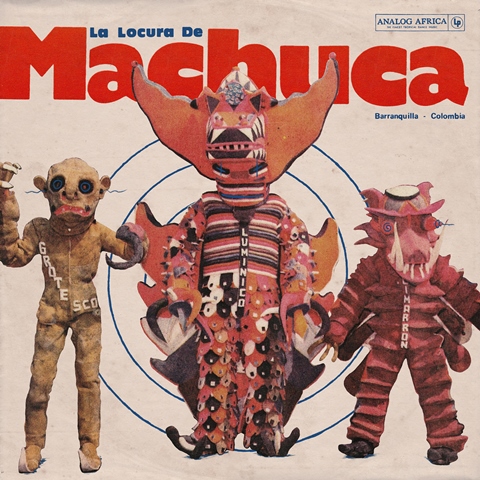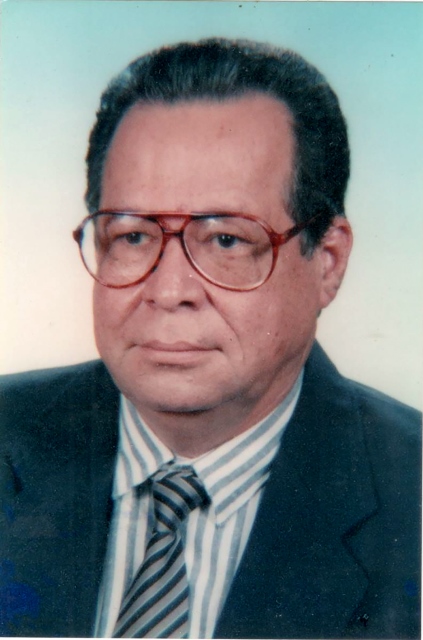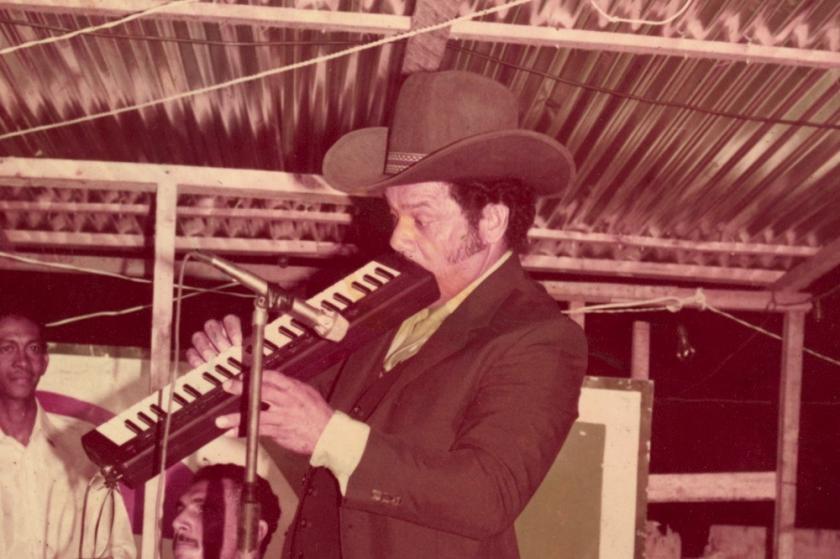La Locura de Machuca translates as “the madness of Machuca.” A Colombian label which issued its first record in 1975, Machuca was active until 1995. Around 26 singles and 36 albums were released. The new compilation brings together 17 tracks from its first five years.
While choosing the word “madness” as the title's operative word is questionable, there’s no doubt that what’s heard is arresting and unusual. The opening track is “Eberebijara” by Samba Negra. It sounds like a DIY collision of “Life During Wartime” Talking Heads and West African drumming with a repeated chant as a vocal overlay. El Grupo Folclórico’s "Juipiti" is explicitly influenced by highlife and has clattering percussion. Sitting between the two, "Le Mongui" by King Somalie features whistling, whooping noises and even more reductive percussion – mostly from a shaker.
 All three tracks were written – created, really – by the label’s co-founder Rafael Machuca (1934–2001). A tax lawyer, he was the deputy director of the Colombian tax authority. In 1975, he was tasked with organising the music for a party for the authority’s directors. His brother-in-law Humberto Castillo, a record dealer, suggested he head to the Plaza de los Musicos in the northern coastal city of Barranquilla to find what he needed. While there, he saw a band called Los Hermanos Caraballo. Smitten, he decided to join their ensuing tour and find them a record deal. Next, he founded a label with Castillo. Its first single, by Los Hermanos Caraballo, was a hit.
All three tracks were written – created, really – by the label’s co-founder Rafael Machuca (1934–2001). A tax lawyer, he was the deputy director of the Colombian tax authority. In 1975, he was tasked with organising the music for a party for the authority’s directors. His brother-in-law Humberto Castillo, a record dealer, suggested he head to the Plaza de los Musicos in the northern coastal city of Barranquilla to find what he needed. While there, he saw a band called Los Hermanos Caraballo. Smitten, he decided to join their ensuing tour and find them a record deal. Next, he founded a label with Castillo. Its first single, by Los Hermanos Caraballo, was a hit.
 Rafael Machuca (pictured left, in 1990) knew finance but had no background in music. He played no instruments, and had never written any songs. Nonetheless, he was unstoppable and La Locura de Machuca digs into his vision of music. An aspect running throughout is Africa: African tracks were re-recorded by the label, as the original import releases were too expensive for most buyers. Samba Negra have a cut titled "Long Life Africa". La Banda Africana are collected, as is Myrian Makenwa. No relation to Miram Makeba.
Rafael Machuca (pictured left, in 1990) knew finance but had no background in music. He played no instruments, and had never written any songs. Nonetheless, he was unstoppable and La Locura de Machuca digs into his vision of music. An aspect running throughout is Africa: African tracks were re-recorded by the label, as the original import releases were too expensive for most buyers. Samba Negra have a cut titled "Long Life Africa". La Banda Africana are collected, as is Myrian Makenwa. No relation to Miram Makeba.
What was issued could be idiosyncratic. El Grupo Folclórico’s "Tucutru" has a highlife circularity, but Rafael Machuca’s one-take ethos pushes the finished recording towards a Flying Lizards angularity. Equally extraordinary is Aníbal Velásquez’s "La Mazamorra Del Diablo" where more whooping noises and devilish moaning mingle with rattling percussion and what seems to be a catering-size melodica. King Somalie’s "Le Mongui" teams a basic rhythm box with keyboard stabs, repetitive scritch-scratch guitar and a wandering, declamatory voice. All could be taken as post-punk experimenta.
How much of what Machuca issued was this offbeat? Are these representative samples of the label’s marginalia? Whatever the answers and lack of context, La Locura de Machuca opens the door on a musical outlook which has remained unfamiliar until now. If there’s more, another compilation would be welcome.
- Next week: Vinyl makeovers of Kraftwerk's later German albums
- More reissue reviews on theartsdesk
- Kieron Tyler’s website















Add comment